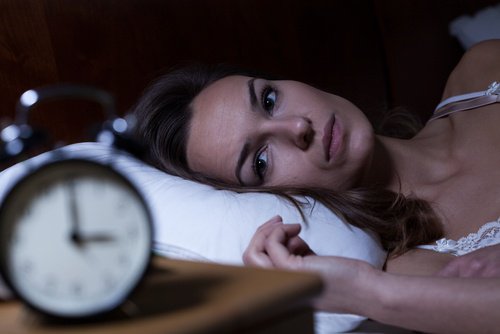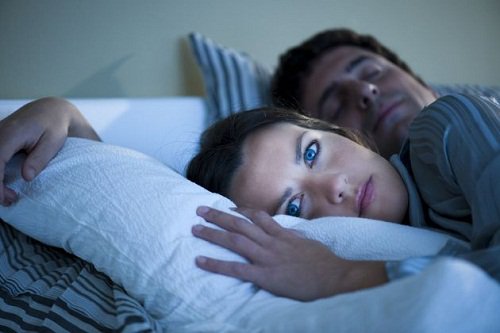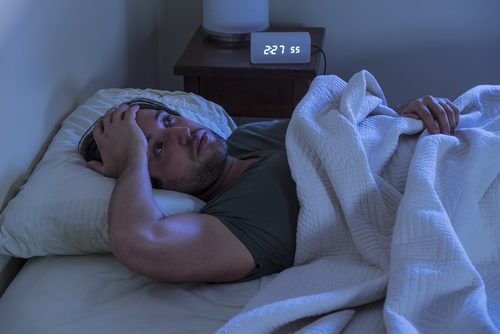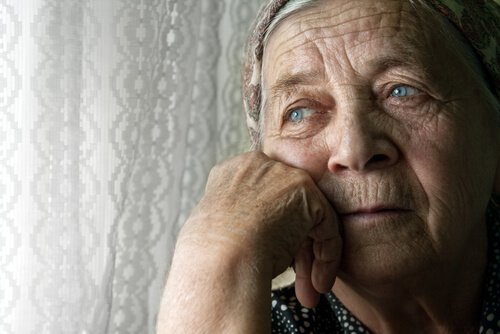Loneliness and Insomnia: An Unexpected Connection


Reviewed and approved by the pedagogue in physical education and nutritionist Elisa Morales Lupayante
Loneliness and insomnia are more closely connected than you may think. Isolated individuals may be more prone to insomnia. This also applies to those with limited social lives. Also, social networks and the internet have created the perfect conditions for people to have fewer close contact with those around them.
In addition, when people move away or treat you unkindly, it can cause you to become entrenched in your own controlled but lonely space. This predisposition to isolation can have many downsides; and, one of the worst can be having a hard time falling asleep.
Lonely people are 25% more likely to not sleep well
When a group of researchers from King’s College (UK) did a study on sleep habits, they expected to find a link between insomnia and several different lifestyle factors. However, this isn’t what happened. Their research studied factors like employment status, having or not having children, alcohol consumption, and even genes.
In the end, none of these had a direct relationship with sleep. However, one aspect did: a feeling of loneliness. Indeed, people who felt alone were 25% more likely to suffer from this unpleasant sleep disorder.
See also: 9 Ways to Relax Before Sleep
Victims and insomnia

The trend was even greater among those who reported having suffered from abuse during childhood. Abuse, rape, and bullying all trigger isolation, which in turn affected the sleep of the people involved.
All of this invites us to reflect on how trauma impacts a person’s sleep quality and quantity. After all, abuse scenarios involve stress, confusion, anxiety, and psychological changes. However, this wasn’t the only conclusive study on the subject.
The same trend occurs in adults
In 2011, researchers in South Dakota conducted a similar study. At that time, they focused on 95 adults who said they felt “alone,” although they weren’t 100% isolated. Their study couldn’t find a direct link between loneliness and insomnia.
However, most people described a phenomenon known as fragmented sleep. In this, their rest was interrupted a lot. Both studies came to similar conclusions: perceptions of loneliness generate insomnia, which is bad for human health.
Anthropological hypothesis

Overall, researchers from the first study think that this link with insomnia is an evolutionary response. From this perspective, loneliness in the human psyche translates into insecurity and a sense of helplessness. We are social beings that need to connect with others to survive, which is why feeling lonely hurts us so much.
Also, when we feel isolated, the brain prepares itself for prevention, struggle, and escape. This could explain why people wake up constantly during the night. Our body is trying to get out of this situation, and in order to do it, it needs you to be awake and alert.
In brief, there may be a self-preservation response that goes off when you feel lonely. This is particularly true for those who are newly independent (young people) or those who have recently moved to a new place.
You might also like: 3 Unusual Ways to Fight Insomnia
Learn how to be independent
The results of both studies confirm it’s key to learn how to be independent. Preparing from a young age can make it easier to adapt to changes during adulthood, and parents have a crucial role to play in all this.
How can you help young people become more independent? Each parent will likely have their own method. But, what’s important is that children and young adults are placed in controlled situations where they need to take care of themselves.
A sense of accomplishment could be another key to establishing stability for newly independent children. What is more, regular phone calls and emails can give a sense of support. Taking a step-by-step approach can make things much easier for the young one trying to adapt to a new lifestyle.
It’s also a good idea for parents to visit on weekends. This way, they can contribute to their children’s emotional stability. This helps renew their confidence while reminding them that they’re not alone.
How to fight loneliness and insomnia

Strangely enough, even though we are more connected than before, we are more lonely than ever. Smartphones, social networks and being online 24/7 has pushed us away from those closest to us. Because of this, we need to renew the tools that bring people together socially, for our own physical and emotional well-being.
What is more, we need to pay attention to people who have been victims of abuse, those who have recently moved or lost a partner, and the elderly. They are the most vulnerable to feelings of isolation.
Therefore, if you know someone who might be feeling lonely, don’t be scared to reach out to them. More often than not, it will make a huge difference. On the other hand, if you’re the one feeling lonely, try reaching out to your close friends or family. They can help you feel better and finally get a good night’s rest.
All cited sources were thoroughly reviewed by our team to ensure their quality, reliability, currency, and validity. The bibliography of this article was considered reliable and of academic or scientific accuracy.
- Hom, M. A., Hames, J. L., Bodell, L. P., Buchman-Schmitt, J. M., Chu, C., Rogers, M. L., … Joiner, T. E. (2017). Investigating insomnia as a cross-sectional and longitudinal predictor of loneliness: Findings from six samples. Psychiatry Research. https://doi.org/10.1016/j.psychres.2017.03.046
- Sharma, B., Lee, T. H., & Nam, E. W. (2017). Loneliness, insomnia and suicidal behavior among school-going adolescents in Western Pacific Island countries: Role of violence and injury. International Journal of Environmental Research and Public Health. https://doi.org/10.3390/ijerph14070791
- Allgulander, C. (2010). Novel approaches to treatment of generalized anxiety disorder. Current Opinion in Psychiatry. https://doi.org/10.1097/YCO.0b013e328333d574
This text is provided for informational purposes only and does not replace consultation with a professional. If in doubt, consult your specialist.








